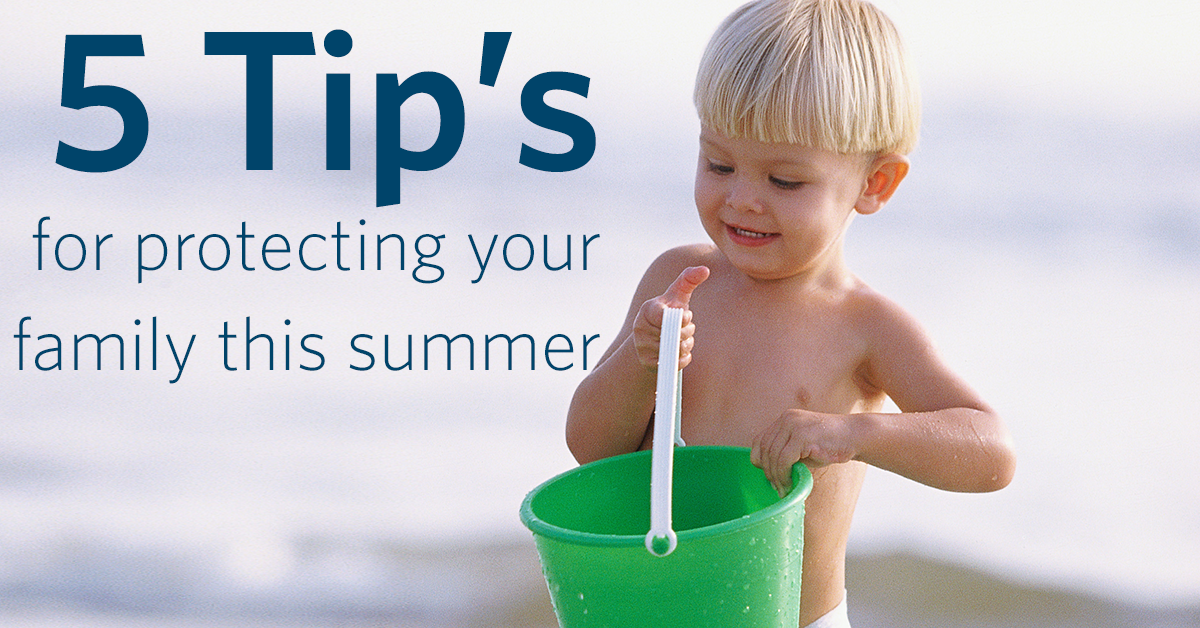
Tip #1 ~ Beware of the Sun
The sun's rays are strongest between 10:00am-4:00pm, you can protect yourself by wearing long sleeves and pants, and by applying a sunscreen that has UVA & UVB protection. Reapply sunscreen every 2 hours as the sunscreen wears off.
Dehydration
Dehydration is a major problem in the summertime. To prevent dehydration, everyone is encouraged to keep a cold bottle of water on hand. Be especially careful when consuming alcoholic beverages.
Heat Stroke
Heat stroke, a severe form of hyperthermia, occurs when the human body absorbs more heat than it can dissipate. This is a serious condition and needs immediate medical attention.
Heat Cramps Symptoms
Muscle pains or spasms usually occur in the abdomen, arms or legs. Spasms usually occur in coordination with strenuous physical activity.
Prevent Heat Related Illness's
Heat related illnesses can become serious or even deadly if unattended. Everyone can be susceptible to heat related illness that is why it is important to help your body keep cool by:
- Dress for the heat. Wear light weight clothing.
- Drink water. Avoid alcohol and caffeine, which dehydrate the body.
- Slow down. Avoid strenuous activity during the heat of the day.
- Take regular breaks. It is important to let your body cool down when engaged in physical activity on hot days.
Tip #2 ~ Food Safety
Food poisoning
Each summer, millions of people fall victim to food poisoning. When grilling food, it is critical that the meats are thoroughly cooked. To prevent perishable foods from spoiling, be sure to keep them covered in ice. If a person begins to feel nauseated, they should seek immediate medical attention. Protect your family and friends by:
- Keep perishable food cool on long trips; place it in a cooler with ice or freezer packs.
- Keep your meat/poultry in a plastic bag so juices do not cross contaminate your fruits or vegetables.
- Don't keep food out in the heat; perishable food outside longer than 2 hours is not safe.
Tip #3 ~ Bites and Stings
Lyme disease
During the summer months, Lyme disease is a very big problem. The primary cause of this illness is a tick bite. If Lyme disease is not treated, it can cause a number of issues including heart problems and damage to the nerves. Before going outdoors, it is a good idea to apply a mild repellent to the exposed skin. Do not forget to inspect the body for ticks after being near a wooded area.
- Ticks prefer thick undergrowth and tall grass.
- After coming indoors, shower and check your body for ticks.
- If you find one, you can easily remove it with fine-tipped tweezers.
Repel the bugs.
Mosquitoes frequent places with entrapped, still water and can transmit West Nile virus. Try to avoid bug-friendly hours (mosquitoes love dusk to dawn.)
- Mosquitoes can transmit West Nile virus.
- Fleas often latch on to animals, including pets.
- Use a bug repellent containing DEET (but wash it off when indoors).
- Don't apply repellent to cuts, wounds, or irritated skin.
- Don't apply repellent to clothing-covered skin.
- Don't apply to face, especially not eyes or mouth.
- Scented soaps, perfumes, and hair sprays attract bugs.
Remove insect stingers.
- If you've been stung by a bee, wasp, or such insect, remove the stinger first by using a straight-edged object (credit card, flat-edged knife).
- Wash with soap and water, and apply ice.
- If you're allergic, or notice growing swelling, pain, or redness, seek medical attention immediately
Tip #4 ~ Outdoor Safety
Asthma attacks
The high humidity of the summer can trigger an asthma attack. Before venturing outdoors, it is advisable to check the humidity levels. Children are especially at risk of developing asthma complications during hot weather. Those who have been diagnosed with asthma should keep their rescue inhaler with them at all times.
Poison ivy
Poison ivy is a plant that can cause the skin to itch and swell. Luckily, most ailments associated with poison ivy can be treated at home with calamine lotion. However, if the rash persists it may require a visit to the doctor.
Tip #5 ~ Bike Safety
After a long cold icy winter, bike riding is a summer staple for many, but it can lead to severe injury for those who aren't careful. The following are ways to stay safe and enjoy bicycling all summer.
- Always wear a helmet. The most serious injuries are a result of a head injury.
- Follow all traffic rules and make sure to wear bright colors that reflect light so you are visible to drivers.
- Get a headlight for the front of your bike and reflectors on the back of your bike if you ride at night.